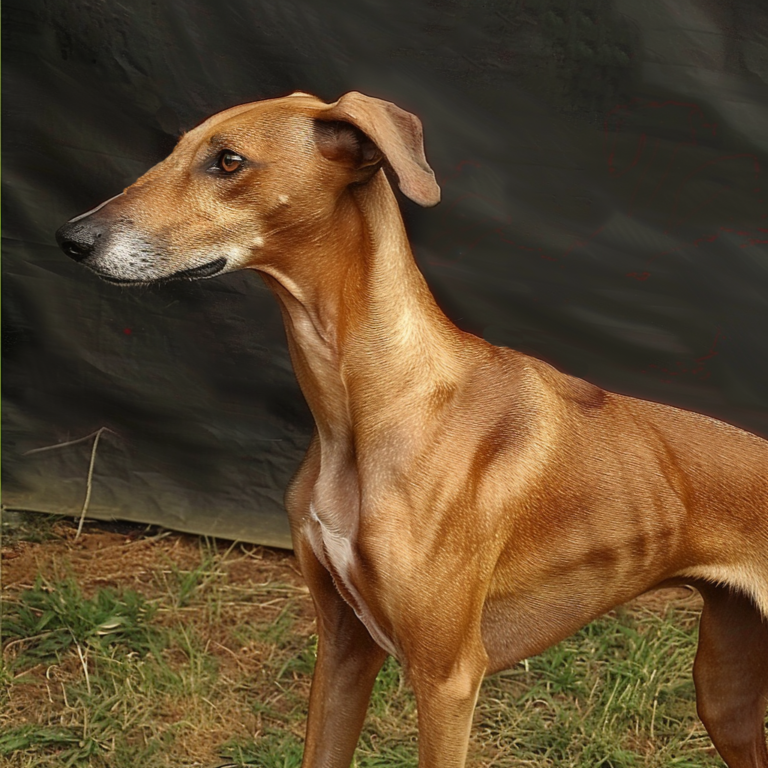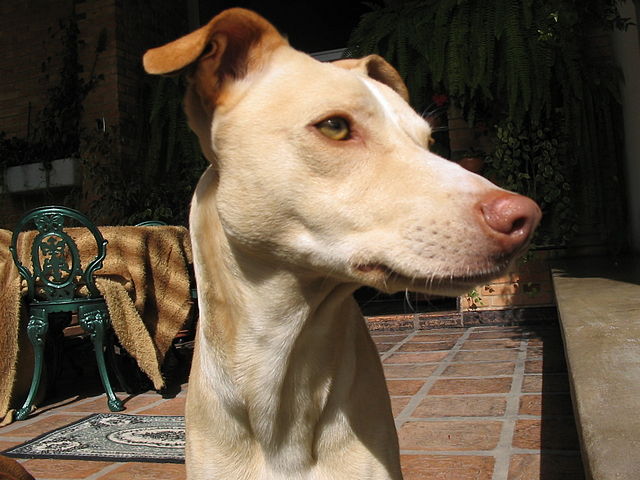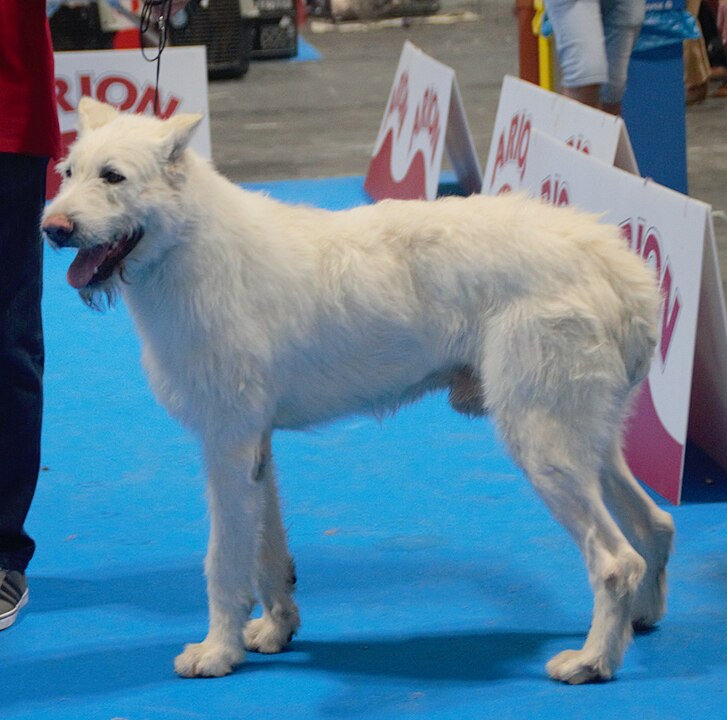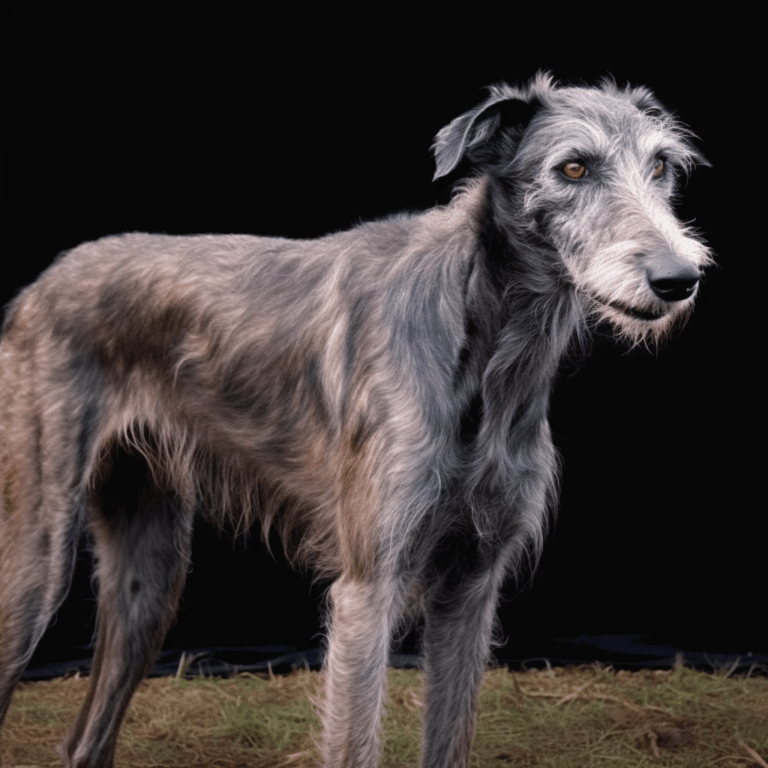The Sloughi is (so far) the newest sighthound breed to join the AKC, but this is actually a very old breed with a rich history. These speedy African hounds have an aloof attitude and a generally cat-like temperament. The standard states that they are “a dog with class and grace”, and indeed they exude a dignified aura about them wherever they go. Reserved and careful in their actions, they don’t like being around people who are loud or generally overwhelming. They will put up with strangers who are polite but won’t be overly affectionate. Neither are they super demonstrative with their owners, although they grow very strong attachments to them and form close bonds.
The Sloughi must be socialized early so that his aloof temperament doesn’t turn to shyness or even aggression. Just because he is reserved doesn’t mean he should ever be fearful – these two traits are very different. This is especially important when it comes to socializing him to children – he can get along with them very well but only if he has been raised with them. Just as he doesn’t tolerate rude behavior from adults, so is the case with children. Teaching kids to be polite to the dog is just as important! Many people find that kids in the toddler age are too rough, and must wait until their child has grown up a bit before owning one of these dogs.
Sloughis need plenty of exercise every day, including time to run around in a fenced area. This makes most of them ill-suited as apartment dogs. Although their frame may cause them to look delicate, this is actually a very athletic and robust dog who benefits from good, hard exercise! Free running is their very favorite activity, and therefore should be given to them on as regular a basis as possible. Just make sure that the fence in the area is at least 6 feet high as this breed can jump! Not fenced in, Sloughis can run so fast that they will be out of your site in mere seconds – so a fence cannot be stressed enough.
Like all sighthounds, the Sloughi has an inborn high prey drive so he must be taught to get along with other pets while young. If raised with cats and small animals from puppyhood, many people have great success living in harmony with all the pets. If the owner waits till the dog is older to introduce him to a cat… the chances go down. Most members of the breed are polite with other dogs, although they may show some territorial behavior if a strange dog just shows up in their yard.
An independent creature, Sloughis are intelligent but not always naturally obedient. This can make the breed difficult to own for novices. When it comes to training, the Sloughi has a very sensitive nature and doesn’t do well with harsh corrections. This said, some tend to become assertive and therefore still need rules and boundaries. While harsh corrections are never necessary, an owner needs to make the rules clear while still maintaining a positive attitude. Many members of the breed only need a firm tone from their owner when they do something wrong, and then they can be redirected into something more positive.
Sloughis have a short, smooth coat that was developed for hot climates and tend to get cold in cooler weather. Investing in a warm dog coat for them to wear on chilly days is essential. On the upside, grooming the Sloughi is a breeze! Although they are large, it takes no time at all to do a quick brush down on these dogs, and they also tend to keep themselves fairly clean. These are traits that they share with their close relatives the Saluki and the Azawakh, although while the three breeds look similar, are entirely separate from eachother.
The Sloughi is generally a quiet dog, although he will bark when he feels it is necessary. Most of the time, he would rather take a nap on the couch or a fluffy dog bed – this breed loves warmth and coziness! He’s not, however, a big fan of hugs. Tending to be touch-sensitive, excessive cuddling with people is not his favorite pastime. He is also sensitive to stress and negative emotions of humans, and does best in homes where things are calm and quiet – like him. If he gets stressed, he may become a problem chewer. If your Sloughi loves to chew, the long-lasting Benebone is built to handle even the toughest jaws – https://amzn.to/410F5TG
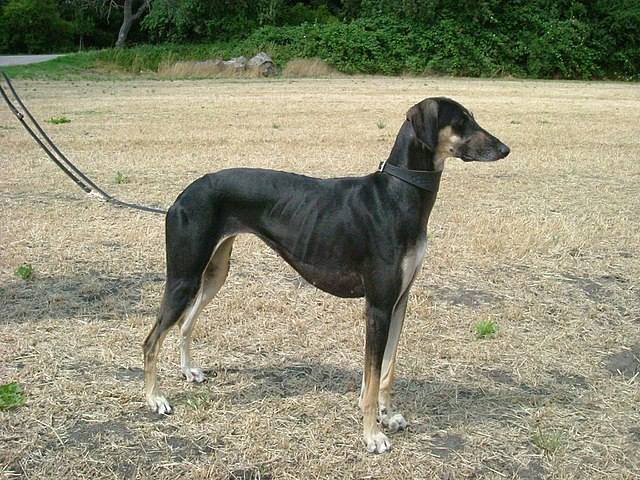
Affiliate Disclaimer
As an Amazon Associate, I earn from qualifying purchases. This means that if you click on an affiliate link on this site and make a purchase, I may earn a small commission at no additional cost to you. Rest assured that I only link to products I have used, or use on a regular basis, and trust enough to recommend them to you!
